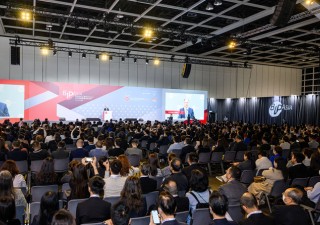WTO Members Reach Trade Agreement, IP Decision
09 December 2013

The World Trade Organization struck a deal Saturday, December 7, on its first-ever trade reform deal. Nearly 160 ministers from WTO member states approved what has been known as the Bali Package. While much of the agreement focuses on food security for developing countries, it is also expected to streamline trade through simplified customs procedures by reducing costs and improving their speed and efficiency, a WTO statement said.
“We achieved what many said could not be done,” said Indonesia’s Trade Minister Gita Wirjawan, who chaired the conference. “President Susilo Bambang Yudhoyono told us on Tuesday that the mystique of Bali would have a positive effect on our negotiations. This is the place where deals get done. I am delighted that Bali has not let us down.”
The trade facilitation decision is a multilateral deal to simplify customs procedures by reducing costs and improving their speed and efficiency, according to a WTO statement. It will be a legally binding agreement and is one of the biggest reforms of the WTO since its establishment in 1995.
The objectives including speeding up customs procedures; making trade easier, faster and cheaper; providing clarity, efficiency and transparency; reducing bureaucracy and corruption; and using technological advances. It also has provisions on goods in transit, an issue particularly of interest to landlocked countries seeking to trade through ports in neighbouring countries.
Part of the deal involves assistance for developing and least developed countries to update their infrastructure, train customs officials, or for any other cost associated with implementing the agreement.
The benefits to the world economy are calculated to be between US$400 billion and US$1 trillion by reducing costs of trade by between 10% and 15%, increasing trade flows and revenue collection, creating a stable business environment and attracting foreign investment.
The ministerial conference also adopted five decisions on the WTOs regular work, including one on intellectual property, where members agreed not to bring “non-violation” cases to the WTO dispute settlement process. “Non-violation“ is WTO shorthand for the technical question of whether there can be legal grounds for complaint about loss of an expected right under the WTO’s intellectual property agreement, even when the agreement has not been violated.






